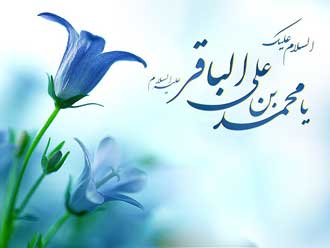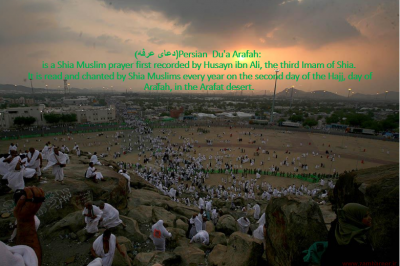Position of Women in Islam
نوشته شده توسطیااباعبدالله الحسین (ع) 11ام شهریور, 1396
By: Ayatullah Fadhil Milani
5.1 Gender Equality
No gender differentiation is found in the Qur�an. The following ayat provide a few examples of the all-embracing nature of the Qur�an vis-a-vis men and women: I do not permit the efforts of workers male or female to be unappreciated - all of you stem from the same source (Qur�an 3:195)
Believers male or female who commit righteous deeds shall surely enter paradise … (Qur�an 4:124)
We shall certainly ensure that the male and female believers, who commit good acts and live virtuous pure lives, will be rewarded for their actions. (Qur�an 16:97)
Male or female believers, who commit good acts, will certainly enter the garden of paradise and receive sustenance beyond measure. (Qur�an 40:40)
O humankind, we created you male and female and appointed you races and tribes so that you may know one another. Surely the noblest among you in the sight of God is the most God-fearing among you. (Qur�an 49:13)
From the above ayat it is clear that gender differentiation is not a component of Qur�anic teaching.
Further, in a Qur�anic ayah that refers to laudable qualities, repeated reference to both ‘men and women’ emphasizes that the same standards apply to both sexes and that Allah’s recompense is in no way related to gender:
� Muslim men and Muslim women
� Faithful men and faithful women
� Obedient men and obedient women
� Truthful men and truthful women
� Patient men and patient women
� Humble men and humble women
� Charitable men and charitable women
� Men who fast and women who fast
The Fifth Holy Imam, Imam al-Baqir (A.S.)
نوشته شده توسطیااباعبدالله الحسین (ع) 11ام شهریور, 1396
By: Ayatullah Ibrahim Amini
Source:
Principles of Shi�ite Creed
He was called Muḥammad and was distinguished with the epithet Bāqir al-�Ulūm, literally, explorer of sciences. His father was Imām Sajjad (A.S.) and his mother was Fāṭimah, the daughter of Imām Ḥasan (A.S.), therefore, he was directly related to Imām �Alī ibn Abīṭālib through both of his parents.
He was born on Rajab 1, 57 Hijrah in Madinah and attained the position of leadership at thirty nine in 95 Hijrah. Since toward the end of his life, the Banī Umayyah regime had declined and was on the verge of disintegration, he managed to utilize the opportunity to explain Islamic laws and teachings to people and train innumerable students and scholars. The contemporary scholars and jurists honored him and drew benefits from him.
�Abdullāh ibn �Atā has said, �I never saw scholars and scientists honor and venerate anyone as much as they did Imām Muḥammad Baqir (A.S.). For example, whenever Ḥakam ibn Utaybah, who was one of most prominent scholars of the time, met Imām (A.S.), he behaved so respectfully, as if an elementary pupil behaves toward his teacher.�
Imām aṣ-Ṣādiq (A.S.) has said, �My father, Imām Bāqir (A.S.), was always praying to God and on occasions when I walked with him, I noticed that he prayed as he walked. He was constantly worshipping God, during meals, at services with people, and he used to urge us to recite Holy Qur�an.�
Imām aṣ-Ṣādiq (A.S.) has also observed, �Whenever my father, Imām Bāqir (A.S.) instructed his servants to do something, he went to supervise them and if he saw they had difficulty performing that, he tried to help them.�
Imām Bāqir (A.S.) was martyred on Dhū�l-Ḥijjah 7, 114 Hijrah by the Umayyad ruler of the time when he was fifty seven years old and was buried at Baqī� cemetery in Madinah.
The Islamic Approach to Law
نوشته شده توسطیااباعبدالله الحسین (ع) 11ام شهریور, 1396By: Allamah Muhammad Hussein Tabatabaei
Islam, on the other hand, with a specific series of laws, claims to guarantee, to perfection, the satisfaction of the needs and happiness of human society. In fact, “Islam” is the name of such a method and system of regulations.
It is evident that such an approach and a system of such laws is called upon to modulate its approach with the needs of every age. One of the modulated instances of this system was the practice of the Holy Prophet of Islam (S) and the set of laws that he implemented in his time.
In other epochs, as well, the modulated application of Islam should also imply the best and purest approach to life that can effectively forward the interests of human society of that age. This clarifies the point that the answer to the question raised by a Western scholar about the capacity of Islam to cater to the changing needs of every epoch-in view of the fact that his question is based on a valid scientific basis-is positive. However, as explained, he views Islam as a fixed system of Divine doctrines, which, despite their permanence, claim to guarantee the satisfaction of the needs of every epoch.
In any case, we should examine whether or not the Holy Qur’an, which is the revealed Book of Islam, and the best interpreter of the ends of this Divine religion, interprets the meaning of ‘prophethood’ and ‘religion’ on the basis of social, psychological, philosophical and material grounds which call for a separate set of laws corresponding with the ethos of every age; or does it lay down a set of permanent unchangeable laws and fixed moral norms and obligations for mankind of all ages; and if the latter is in reality the Qur’anic viewpoint, how does it justify its claim to satisfy the needs of every epoch?
Does the Qur’an desire that human societies should gradually reach a fixed static condition, and that all the doors of progress should be closed to human civilization? Does the Qur’an want all sorts of developmental and progressive human activities to be brought to a permanent halt? And how does it meet the challenge of a fluid Nature and an ever-changing system of the cosmos, of which man and his society are a part?
What is certain is that the Qur’an explicates the position of the revealed religion as originating from the hidden world (’alam al-ghayb). It links its message to the total system of creation and the perpetually changing universe. At the same time it explicitly states the fixity, unchangeableness and permanence of the constituents of religion. The Qur’an interprets the merits, happiness or misfortune of an individual or a society in a way which differs from the outlook of a Western scholar. These issues, when examined from the eyes of the Qur’an take an appearance quite different from what they seem when perceived through the spectacles of materialistic discussions.
The Qur’an regards the Islamic law and the Islamic approach as a series of principles that guide the system of creation and in particular the human society with its continuously changing and evolving nature which is itself a part and parcel of the world of nature. In other words, the Qur’an considers Islam to be a series of principles that are in complete harmony with the laws of creation, and hence these laws are as unchangeable as nature itself.
These laws embody truth; they are not subservient to the desires and whims of any person, like the laws and statutes of countries with despotic and dictatorial regimes, nor like the laws of democratic countries which are subject to the wishes of the majority. Islamic laws have been legislated in harmony with the system of creation of the universe, and are wholly dependent upon the Will o the God of the universe.
Du'a Arafah
نوشته شده توسطگل نرگس 9ام شهریور, 1396What will happen if people faults are revealed to each other
نوشته شده توسط... 9ام شهریور, 1396
Imam Javad (A.S) answering Abdolazim Hassani narrated from his ancestors and fathers, saying: If the faults of any of you were revealed to each one of you, you would not bury each other [1]. The saying of Imam Javad (A.S) has two great lessons. First; we should never become proud of some material or spiritual success and boast to others. We must always remember that apart from the infallibles and saints, other people may have deficiencies in their actions and moralities. The only being who is aware of this, is the Almighty and due to God’s kindness, these deficiencies are hidden in order to preserve one’s dignity in the society.
It is also necessary to realise that all success in life are God’s gifts to human being as we read in Dua Arafah: O’ my Master, You have hidden my sins, my father and mother’s sins so that I cannot be bothered and blamed by others because if they knew about my faults, they would have cut their relation with me. On the Day of Judgment Allah (SWT) will say to human being: I have preserved your dignity by covering your faults and not shamed you in front of others when you were living on the earth, how can I shame you today in front of others whilst you are standing in front me with tears in your eyes?
Note: [1] Montahul Amaal, Vol. 2, Page 522.

